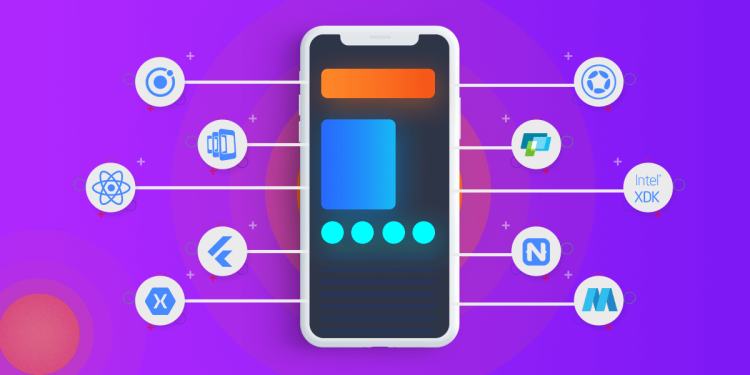Mobile apps are a part and parcel of our lifestyle. We cannot imagine spending even a second without them. From waking up till going to the bed, mobile phone users come across several built-in apps from the smartphone.
Matt Galligan, Co-founder of Circa once said:
“In my opinion, the future of mobile is the future of everything.”
This proves to be true. The recent landscape of technology has led to the proliferation of mobile apps. This number is expected to multiply and become a core business for many – thanks to the advances of 5G mobile technology. To leverage the benefits, startups, business professionals and decision makers in large corporations are looking into the mobile app development niche to double their revenues.
If you have a kick-ass idea and you want to usher in mobile app development, then this article is for you. Businesses need to follow the right procedure to build mobile apps; if not, there’s a good possibility your project won’t succeed. If you don’t follow the right procedure, you could end yourself in a never-ending cycle of efforts, regardless of how cutting edge your mobile app development technologies are.
As we will discuss in this blog, you should adhere to this comprehensive mobile app development guide in order to attract an audience, generate revenue and build a good word-of-mouth. So let’s begin! .
Before going into the intricate details of mobile app development services, we’ll first briefly discuss what mobile app development is.
Part 1: What is Mobile App Development?
Mobile app development is the process of developing apps and building software for mobile devices. It includes stages of idea generation, winframing, prototyping, UI/UX designing, to the coding, testing, and deployment.
Some of the mobile apps are designed to serve in-built smartphones, tablets, and digital assistants. There are certain apps that need to be installed from the respective app stores. Moreover, some apps can be accessed from the device’s browser without having a need to download them.
Part 2: How Do You Develop a Mobile App Step-By-Step?
- Let’s talk about the different phases of developing a mobile application.
Step 1: Develop Your Concept & Formulate a Plan:
Before embarking on the mobile app development journey, we should consider asking following questions from ourselves:
- What will be the purpose of the mobile application?
- What are the objectives that we’d like to achieve with this app?
- Which user issues is the mobile app intended to address?
- Which features of the app make use of the newest technology?
- How much does the mobile device cost?
- Will the funds be enough for the mobile application that we want to create? Or does it need further funding from investors?
- How will you develop the app—through an internal team or an outsourced one?
At this stage, you should be able to make a strategy for your app idea. Being clear about your objectives is inevitable in the app development process. It provides you with a tailored transformation experience both for iOS and Android.
Step 2: Conduct Market Research:
Market research will give you a clear and wholesome picture of the potential app ideas. You need to thoroughly study your target audience, their needs, market competitor strengths and weaknesses. Furthermore, some research should also be done on opportunities and threats for your novel app idea. How can you make your app valuable and viable for the audience? What are the pivotal insights about your competitors? And lastly, how do you plan to differentiate your product from its competitors?
Overall, market research offers a glimpse of in-depth understanding of your target audience, competitors and the market you intend to work in.
Step 3: Outline Wireframes & Prototypes:
The next crucial step in mobile app development is designing wireframes. Wireframe is a structural blueprint that defines the functionality and appearance of your mobile app. Having an architectural diagram at hand that not only provides a clear roadmap but also offers the conceptualization to begin with the mobile app. You can define and finalize the layout, design and functionality of each screen and the user experience associated with it at this stage.
Businesses can identify any problems in the application design and map out the user flow with the help of wireframing and prototype stages. Early detection of these inefficiencies can help businesses save both money, time and effort.
Creating a working prototype from the wireframe is known as prototyping. Businesses can test the application with users and get their input on its functioning and design.
Step 4: Build Your App:
Now the real execution of your app idea begins here. Once the app idea, market research, UI, and prototypes are aligned, it’s time to bring life to your app design. The app development stage transforms ideas into a real, functional app. It allows businesses to develop bespoke app solutions that are useful for the target audience and fulfills the needs and requirements of the end users.
Step 5: Test Your Mobile App:
Before launching the final product, a significant step is to ensure the functioning of the app. Finding and fixing bugs, glitches, and functional issues is a part of the testing process. Make that the app functions on a variety of devices, such as tablets and smartphones, and on all platforms (Android, iOS, and hybrid). This step makes the app a viable, scalable and optimized product for the users. Despite all the nitty-gritty testing processes, there is always a possibility that something will go wrong during the app development.. You should be prepared to deal with them right away. For more details visit stackup solutions.
In a Nutshell
Mobile app development journey is not everyone’s cup of tea. It begins with intricate details: from idea, to the prototyping, UI and UX, development phase and final launch stages. The success of a mobile app directly depends on the seamless incorporation of these stages in your app development ride. Some important points to keep in mind are as follows:
- Have a vivid understanding of the market needs and gap analysis
- Prioritize developing on-demand and customized mobile apps for your users
- Deliver a high-quality and interactive user experience through your app
- Optimize cost and post-launch support for your app users

















